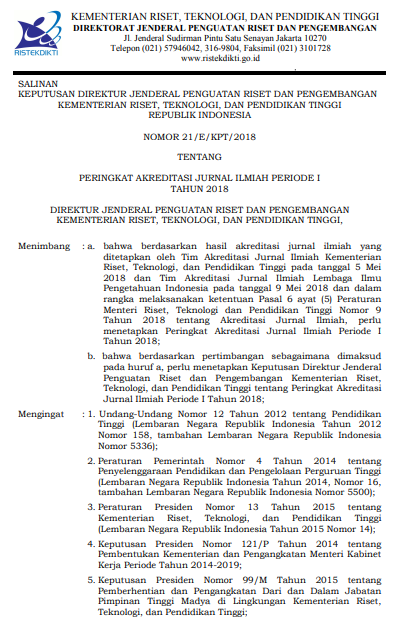Fin-tech Regulations Development, Challenges, and Solutions : A Review
Abstract
Fintech is a term which is the most common and used in the financial sector these days around the globe. Its growth has made it clear that it is there to stay, and it is going to cause a major disruption on the globe level, when talked about in relation to financial markets. It is an old saying, “With great powers come great responsibilities” and the same is true in relation to fintech. With the kind of growth, it is doing it needs to be monitored and regulated on a major level. When we talk about the fast-moving areas where fintech has made an impact are e-invoice, e-payments, deposits, and financial transactions on personal, corporate and government level. When we calculate the scale at which fintech is growing we need to understand that it is just a matter of time that everything will be assessable with a click of a button and if in the wrong hands we can imagine the impact done. When we see the dark side of fintech where the companies have an assesses to the data and every personal information of customers, they can use/misuse the same at their liberty. If we study the cases from around the globe it is a simple practice of which works of a simple rule, “If it works here, it will work everywhere.” This paper also delves into tracing the cyber threats faced by the financial sector due to its reliance on technology and sensitive data. The authors have analysed a number of laws, rules, and guidelines to regulate fintech in India that are designed to foster innovation, protect the interests of consumers, and preserve the country's financial stability. Thus, in the said paper the authors have tried to study the journey of Fintech in relation to its regulatory legal journey, in relation to India.
Full Text:
PDF View
References
Ahern, D. M. (2020). Regulators Nurturing FinTech Innovation: Global Evolution of the Regulatory Sandbox as Opportunity Based Regulation. SSRN Electronic Journal. https://doi.org/10.2139/ssrn.3552015
Anifa, M., Ramakrishnan, S., Joghee, S., Kabiraj, S., & Bishnoi, M. M. (2022). Fintech Innovations in the Financial Service Industry. Journal of Risk and Financial Management. https://doi.org/10.3390/jrfm15070287
Chen, C. C. (2018). Regulatory Sandbox and InsurTech: A Preliminary Survey in Selected Countries. SSRN Electronic Journal. https://doi.org/10.2139/ssrn.3275929
Despotović, A., Parmaković, A., & Miljković, M. (2023). Cybercrime and Cyber Security in Fintech. In Contributions to Finance and Accounting. https://doi.org/10.1007/978-3-031-23269-5_15
Dorfleitner, G., Hornuf, L., & Kreppmeier, J. (2021). Promise Not Fulfilled: Fintech Data Privacy, and the GDPR. SSRN Electronic Journal. https://doi.org/10.2139/ssrn.3950094
EY.ai. (2017). Global FinTech Adoption Index 2017. https://assets.ey.com/content/dam/ey-sites/ey-com/en_gl/topics/banking-and-capital-markets/ey-fintech-adoption-index-2017.pdf
Financial Stability Board. (2017a). Financial Stability Implications from FinTech. https://www.fsb.org/2017/06/financial-stability-implications-from-fintech/
Financial Stability Board. (2017b). FinTech Credit: Market Structure, Business Models and Financial Stability Implications. https://www.fsb.org/2017/05/fintech-credit-market-structure-business-models-and-financial-stability-implications/
Firouzi, F., Chakrabarty, K., & Nassif, S. (2020). Intelligent Internet of Things: From Device to Fog and Cloud. In Intelligent Internet of Things: From Device to Fog and Cloud. https://doi.org/10.1007/978-3-030-30367-9
Gai, K., Qiu, M., Sun, X., & Zhao, H. (2017). Security and privacy issues: A survey on fintech. Lecture Notes in Computer Science (Including Subseries Lecture Notes in Artificial Intelligence and Lecture Notes in Bioinformatics). https://doi.org/10.1007/978-3-319-52015-5_24
Hanelt, A., Bohnsack, R., Marz, D., & Antunes Marante, C. (2021). A Systematic Review of the Literature on Digital Transformation: Insights and Implications for Strategy and Organizational Change. Journal of Management Studies. https://doi.org/10.1111/joms.12639
Hudon, M., Labie, M., & Szafarz, A. (2019). A long time ago in a galaxy far, far away ... How microfinance evolved and how research followed. In A Research Agenda for Financial Inclusion and Microfinance. https://doi.org/10.4337/9781788114226.00007
International Association of Insurance Supervisors. (2018). ssues Paper on the Increasing Use of Digital Technology in Insurance and its Potential Impact on Consumer Outcomes. https://www.iaisweb.org/uploads/2022/01/180801-Issues-Paper-on-the-Increasing-Use-of-Digital-Technology-in-Ins-its-Potential-Impact-on-Consumer-Outcomes.pdf
Kalra, D. (2019). Overriding FINTECH. Proceeding of 2019 International Conference on Digitization: Landscaping Artificial Intelligence, ICD 2019. https://doi.org/10.1109/ICD47981.2019.9105915
Kaur, G., Lashkari, Z. H., & Lashkari, A. H. (2021). Understanding Cybersecurity Management in FinTech: Challenges, Strategies, and Trends. In Springer.
Khurana, A., Kumar, A., & Jain, M. (2023). Fintech Laws and Regulations India 2023-2024. The International Comparative Legal Guides and the International Business. https://iclg.com/practice-areas/fintech-laws-and-regulations/india
Kondratyeva, M. N., Svirina, D. D., & Tsvetkov, A. I. (2021). The role of information technologies in ensuring banking security. IOP Conference Series: Materials Science and Engineering. https://doi.org/10.1088/1757-899X/1047/1/012069
Lilian, E. (Ed.). (2019). Law, Policy and the Internet. Hart Publishing.
Mahalle, A., Yong, J., & Tao, X. (2021). Regulatory Challenges and Mitigation for Account Services Offered by FinTech. Proceedings of the 2021 IEEE 24th International Conference on Computer Supported Cooperative Work in Design, CSCWD 2021. https://doi.org/10.1109/CSCWD49262.2021.9437631
Marda, V., & Sinha, A. (2022). FinTech Lending in India: Taking Stock of Implications for Privacy and Autonomy. Indian Journal of Law and Technology, 18(1). https://www.ijlt.in/journal/fintech-lending-in-india%3A-taking-stock-of-implications-for-privacy-and-autonomy
Milian, E. Z., Spinola, M. de M., & Carvalho, M. M. d. (2019). Fintechs: A literature review and research agenda. Electronic Commerce Research and Applications. https://doi.org/10.1016/j.elerap.2019.100833
Morse, A. (2015). Peer-to-Peer Crowdfunding: Information and the Potential for Disruption in Consumer Lending. Annual Review of Financial Economics. https://doi.org/10.1146/annurev-financial-111914-041939
Patel, P., & Patil, S. (2023). Embracing Fintech: India’s progress in the digitalization of the financial industry. Prayukti – Journal of Management Applications. https://doi.org/10.52814/pjma.2023.3203
Prasad, A. S., Raghavan, M., Chugh, B., & Singh, A. (2019). Implementing the Personal Data Protection Bill : Mapping Points of Action for Central Government and the future Data Protection Authority in India. October.
Puschmann, T. (2017). Fintech. Business & Information Systems Engineering, 59(1), 69–76. https://doi.org/10.1007/s12599-017-0464-6
Rahman, M., Ismail, I., & Bahri, S. (2020). Analysing consumer adoption of cashless payment in Malaysia. Digital Business. https://doi.org/10.1016/j.digbus.2021.100004
Rajaiah, J., Majumder, A., Ingale, K., & Pasumarti, S. S. (2022). Central Bank and Fintech: Regulatory Challenges and Framework. In Contributions to Finance and Accounting. https://doi.org/10.1007/978-3-031-11545-5_3
S&P Global Market Intelligence. (2018). 2018 US Fintech Market Report. https://www.spglobal.com/marketintelligence/en/documents/2018-us-fintech-market-report.pdf
Saeed, S., Almuhaideb, A. M., Kumar, N., Zaman, N., & Zikria, Y. Bin. (2022). Handbook of Research on Cybersecurity Issues and Challenges for Business and FinTech Applications. In Handbook of Research on Cybersecurity Issues and Challenges for Business and FinTech Applications. https://doi.org/10.4018/978-1-6684-5284-4
Saxena, A., & Nath Tripathi, S. (2021). Exploring the Security Risks and Safety Measures of Mobile Payments in Fintech Environment in India. International Journal of Management (IJM).
Schueffel, P. (2016). Taming the beast: A scientific definition of fintech. In Journal of Innovation Management. https://doi.org/10.24840/2183-0606_004.004_0004
Stulz, R. M. (2019). FinTech, BigTech, and the Future of Banks. Journal of Applied Corporate Finance. https://doi.org/10.1111/jacf.12378
Subaramaniam, K., Kolandaisamy, R., Jalil, A. Bin, & Kolandaisamy, I. (2020). The impact of E-Wallets for current generation. Journal of Advanced Research in Dynamical and Control Systems. https://doi.org/10.5373/JARDCS/V12SP1/20201126
The Organisation for Economic Co-operation and Development. (2019). Financial Markets, Insurance and Pensions: Inclusiveness and Finance. https://www.oecd.org/finance/Financial-markets-insurance-pensions-inclusiveness-and-finance.pdf
Wang, Y., Xiuping, S., & Zhang, Q. (2021). Can fintech improve the efficiency of commercial banks? —An analysis based on big data. Research in International Business and Finance. https://doi.org/10.1016/j.ribaf.2020.101338
World Economic Forum. (2017). Beyond Fintech: A Pragmatic Assessment Of Disruptive Potential In Financial Services. https://www3.weforum.org/docs/Beyond_Fintech_-_A_Pragmatic_Assessment_of_Disruptive_Potential_in_Financial_Services.pdf
Xu, M., David, J. M., & Kim, S. H. (2018). The fourth industrial revolution: Opportunities and challenges. International Journal of Financial Research. https://doi.org/10.5430/ijfr.v9n2p90
Zhang, Z., & Teo, H. H. (2014). The impact of mobile trading technology on individual investors’ trading behaviors: The “two-edged sword” effect. ECIS 2014 Proceedings - 22nd European Conference on Information Systems.
DOI: http://dx.doi.org/10.20884/1.jdh.2024.24.1.4074
Refbacks
- There are currently no refbacks.
JURNAL DINAMIKA HUKUM Indexed by :
 | Jurnal Dinamika Hukum | |
| Faculty of Law, Universitas Jenderal Soedirman | Copyright of Jurnal Dinamika Hukum | |
| Yustisia IV Building, Law Journal Center | ISSN 2407-6562 (Online) ISSN 1410-0797 (Print) | |
| Purwokerto, Central Java, Indonesia, 53122 | JDH is licensed under a Creative Commons Attribution 4.0 International License | |






